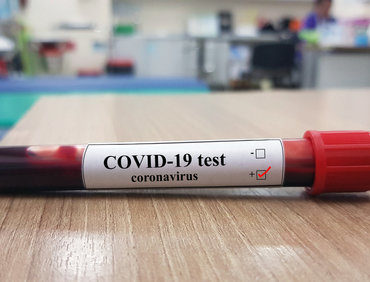Predictive AI Spots COVID-19 Patients with Life Threatening ‘Wet Lung’

As the rise in COVID-19 cases threatens to overwhelm healthcare facilities in areas hard hit by the coronavirus (including New York City, where the USNS Comfort, pictured below, has been sent to relieve crowded hospitals), there is an urgent need to identify the relatively few patients who will become critically ill. Researchers at New York University, working with COVID-19 data from hospitals in China, said today their AI-based model shows promise in diagnosing patients at risk for severe illness when initially examined by doctors.
The predictive model’s objective, stated researchers at the NYU Grossman School of Medicine and NYU Courant Institute of Mathematical Sciences in a blog, is to “learn from historical data to help predict who will develop acute respiratory distress syndrome (ARDS), a severe outcome in COVID-19” involving potentially fatal fluid buildup in the lungs.
The results of the study** – published online March 30 in the journal Computers, Materials & Continua, based on data shared by Wenzhou Central Hospital and Cangnan People’s Hospital, both in Wenzhou, China – identified features of COVID-19 patients that predicted later emergence of ARDS, also called “wet lung” disease. The researchers said “a mildly elevated alanine aminotransferase (ALT, a liver enzyme), the presence of myalgias (body aches), and an elevated hemoglobin (red blood cells), in this order, are the clinical features, on presentation, that are the most predictive.” They said predictive models that learned from the historical data achieved 70 to 80 percent accuracy in predicting severe cases involving ARDS.
“While work remains to further validate our model, it holds promise as another tool to predict the patients most vulnerable to the virus, but only in support of physicians’ hard-won clinical experience in treating viral infections,” said study contributor Dr. Megan Coffee, MD, PhD, clinical assistant professor in the Department of Medicine and member of the Division of Infectious Diseases and Immunology at NYU Langone.
Demographic, laboratory, and radiological findings were collected for the NYU research from 53 patients in China as they tested positive in January for the SARS-CoV-2 virus, which causes COVID-19. The researchers reported that “symptoms were typically mild to begin with, including cough, fever, and stomach upset. In a minority of patients, however, severe symptoms developed within a week, including pneumonia.”
The study used “decision trees” that track decisions, amid a variety options, “and model the potential consequences of choices at each step in a COVID-19 pathway.” Surprisingly, lung image patterns associated with COVID-19, such as “ground glass opacities,” fever and strong immune responses, “were not useful in predicting which of the many patients with initial, mild symptoms would go on to develop severe lung disease,” the researchers said. Nor were age and gender useful in predicting ARDS, although past studies had found men over 60 to be at higher risk.
ALT levels were only slightly higher in patients with COVID-19 but featured prominently in prediction of severity, along with deep muscle aches and higher levels of hemoglobin, the iron-containing protein that enables blood cells to carry oxygen to tissues in the body, “were also linked to later respiratory distress,” the researchers said.
“I will be paying more attention in my clinical practice to our data points, watching patients closer if they for instance complain of severe myalgia,” said Dr. Coffee. “It’s exciting to be able to share data with the field in real time when it can be useful. In all past epidemics, journal papers only published well after the infections had waned.”
** Jiang, X., Coffee, M., Bari, A., Wang, J., Jiang, X., et al. (2020). Towards an Artificial Intelligence Framework for Data-Driven Prediction of Coronavirus Clinical Severity. CMC-Computers, Materials & Continua, 63(1), 537–551.












